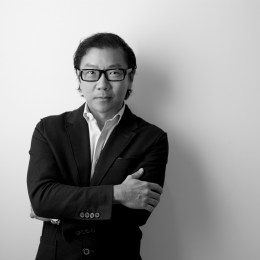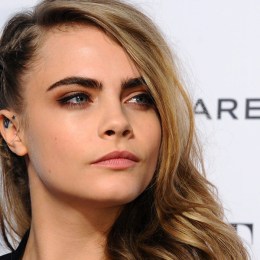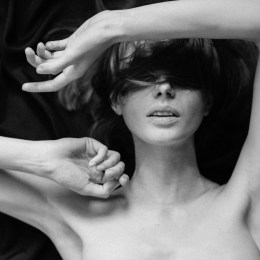Halal personal care is the fastest growing beauty market in the world. According to Future Market Insights, it is expanding at a rate of 9.9 percent per year during the forecasted period of 2015-2020.
This is not surprising, considering there are globally 1.7 billion people whose collective spend on Halal-approved food and lifestyle products is set to reach $4.1 trillion by 2019.
In the 2011 census, 436,300 Australian’s identified as Muslim and there are an increasing number of food and lifestyle products available locally that are certified Halal by a third party authority (there are several organisations that provide such audits) as well as products that aren’t certified but are Halal-friendly.
To cater for this group, products must be Halal; an Islamic Arabic term used to describe items that are acceptable for consumption.
The term is typically associated with food and beverages but, according to Keysar Trad, president of the Australian Islamic Council, it extends to many aspects of life, including makeup, skincare and haircare.
He explains that there are many factors that need to be addressed for a product to be considered Halal – namely, they must not contain certain ingredients and ingredients derived from animals must be from those slaughtered according to a specific method of cutting while a prayer is recited.
“Pork is one ingredient forbidden according to Islamic law,” he says. “It’s because it is believed to be unclean and unhealthy.
“Alcohol should not be consumed because it is a substance that can weaken the mind. It is also not acceptable under Islamic law.”
Spas, salons and clinics looking to attract and accommodate Muslim clientele can take advantage of the growing category of Halal-friendly professional aesthetics brands on the market.
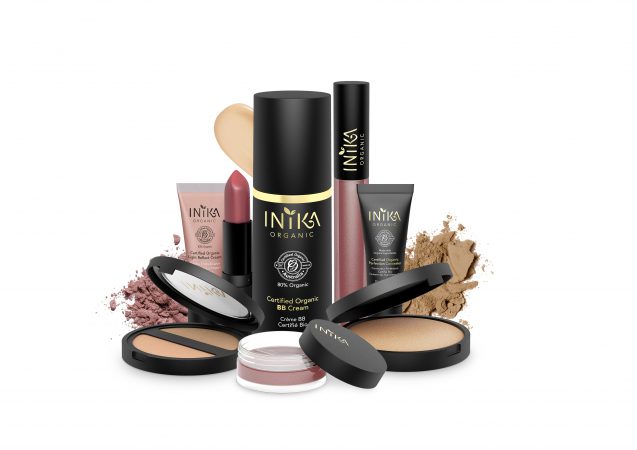
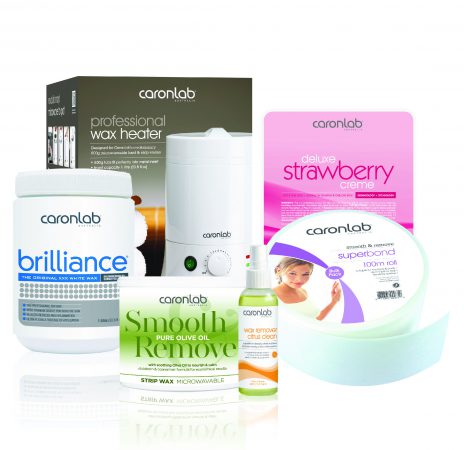
Teacher, television presenter and Muslim sociologist Dr Susan Carland (married to Waleed Aly, award winning co-host of Network Ten’s The Project), examined Islam from an academic perspective for two years before converting to the religion at age 19.
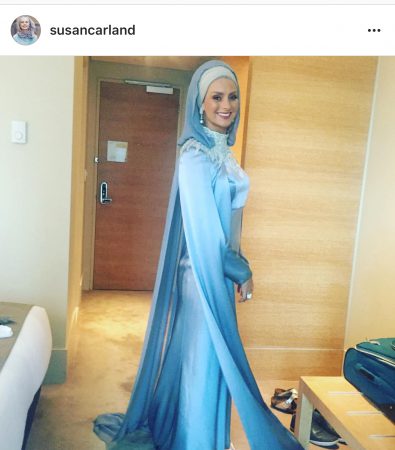
She gives us insight into the Halal personal care category:
What does Halal mean?
Halal means “permissible”, or acceptable, according to Islamic law.
The idea of an Halal diet is that it’s meant to be something where the animals should be treated humanely in life and death.
We don’t eat pork or consume alcohol and there a couple of ceremonial things that should happen at the time of death for the animal. It should be killed as quickly as possible, with the minimum amount of pain. It shouldn’t see other animals being killed (so it shouldn’t be frightened).
There are parts of the Halal industry where you might find some take the letter of the law but perhaps not the spirit. Perhaps a quick prayer might be said as the animal is slaughtered but, if the animal didn’t have a humane life, for me that does not constitute Halal.
For example, I would not buy a chicken or eggs that are not free range because I don’t think animals being caged conforms to Halal requirements.
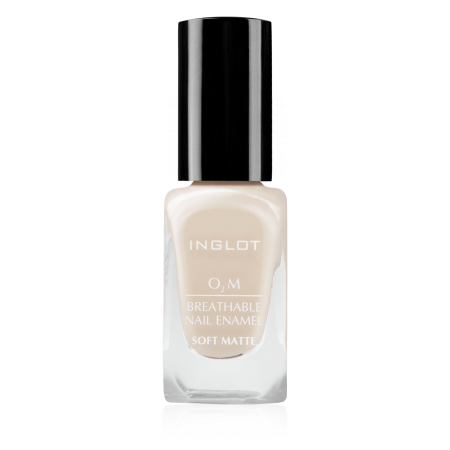
Are Halal personal care products as important to you as Halal food?
They are just as important, but having access to Halal beauty products and cosmetics is a much more recent thing. The Halal beauty industry is a rapidly growing category. In the last five years it has truly skyrocketed
I still remember a couple of years ago when Inglot, a non-Muslim makeup brand, came out with an Halal-friendly nail polish!
The reason it received so much attention in our community wasn’t just because it didn’t contain alcohol but because it’s water-permeable.
When we pray, we wash our hands and face first. Traditional nail polish creates a barrier between the fingernails and water. For [nail polish] to fulfil the requirement of washing before prayer, the water needs to touch the nail.
When Inglot released water-permeable nail polish it was HUGE in the Muslim world. Suddenly, there was this nail polish that women can wear any time!
We could not believe it when it came out. I walked into the Inglot store and the sales assistant could tell I was Muslim because of my hijab and she asked me: “Would you like to try our Halal nail polish?”
They’d obviously trained their staff! There are Muslims with a lot of cash to spend.
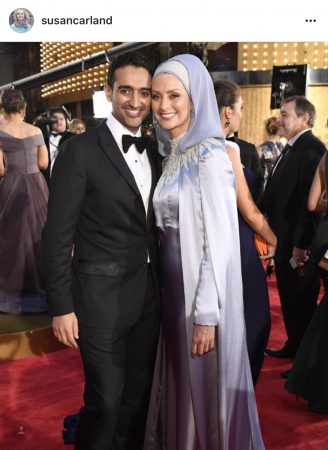
The Inglot nail polish isn’t Halal certified but is obviously Halal friendly. Is third party Halal certification important?
Recently a lot more products in Australia have been certified Halal and is is really nice having those options.
If you go to predominately Muslim countries like Malaysia, there is Halal certification on everything. Even on bottles of water. I remember thinking, how could water not be Halal?!
But if I go to a store that stocks products that are vegan or cruelty-free, and I see that the product doesn’t contain alcohol, that’s usually enough to make me feel very confident using it.
If there’s no animal product in your makeup and it’s Certified Cruelty Free then you don’t need to worry too much because it’s likely it will therefore be Halal.
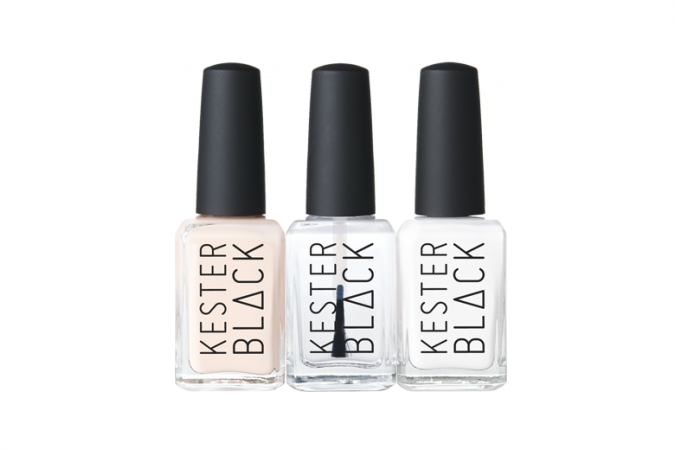
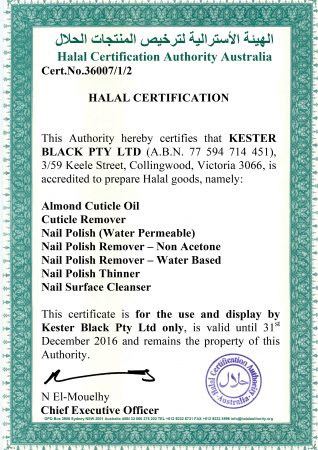
What beauty products are you loving?
Kester Black nail polish! They are not a Muslim brand but their polishes are water-permeable and they have Halal certification.
I was so excited when I found out about it. I loved that it was vegan and cruelty-free. I also love that they donate to charity.
I love the Halal certification and this isn’t even a Muslim brand. It’s a nail polish brand that has a strong social conscience that thought: “We may as well get Halal certification and make choosing our brand easier for Muslims”.
I ordered three bottles because it ticks all the boxes as a truly Halal product. It doesn’t harm humans or any other creature and I can still wear it and pray!
What is the future for the Halal personal care category in Australia?
I think it will continue to grow and I think the quality will continue to improve. We’ll see more of the big brands embracing it.
Really big fashion brands like Chanel and Uniqlo are releasing hijabs. They realise that this is a market that is essentially untapped.
It’s nice. It’s simply creating another option for their diverse market, which has got to be a good thing.
We’ll see it more in the cosmetic industry and that will extend to other areas as well.
Dr Susan Carland is an academic, author, and social commentator. She has a PhD from Monash University’s School of Social Sciences, where she is a lecturer and researcher at Monash University’s National Centre for Australian Studies. Her teaching and research expertise are in gender, sociology, contemporary Australia, and the modern Muslim experience. Susan is a regular paper reviewer and Friday panelist on ABC TV’s News Breakfast, and was also the host of the ABC Radio National Series Assumptions. She has appeared on the Agony series, Lateline, Q and A, The Drum, Home Delivery, and has featured in Harpers Bazaar, Dumbo Feather and Sunday Life magazines. In 2012 she was named on the 20 Most Influential Australian Female Voices list by The Age. She has also been named on the 500 Most Influential Muslims in the World list.


